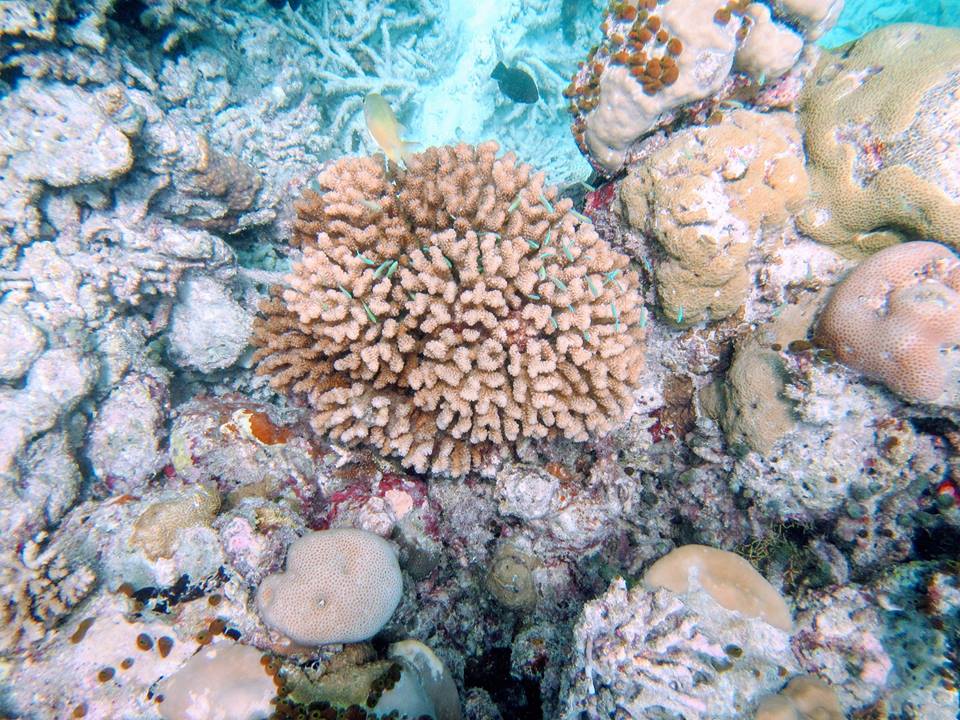Maldives faces elevated risk of coral bleaching
The Marine Research Centre advised suspending dredging and reclamation projects.

15 May 2019, 09:00
Rising ocean temperature is accelerating coral bleaching in the Maldives, the Marine Research Center has warned, advising the government to suspend projects that affect the health of reef ecosystems.
The MRC said in a statement Monday that the Maldives has been classified at the ‘watch’ level by a satellite monitoring programme of the United States National Oceanic and Atmospheric Administration, which categories regions by No Stress, Watch, Warning, Alert Level One and Alert Level Two.
“Coral bleaching status of Maldives could jump to warning level and even to Alert Level One in some parts of the country,” the centre warned.
“Human activities may contribute a slower recovery of bleached corals. Activities such as dredging, land reclamation and beach nourishment projects, which are done at very large scale in Maldives, is damaging the environment of the coral reefs.”
Become a member
Get full access to our archive and personalise your experience.
Already a member?
Discussion
No comments yet. Be the first to share your thoughts!
No comments yet. Be the first to join the conversation!
Join the Conversation
Sign in to share your thoughts under an alias and take part in the discussion. Independent journalism thrives on open, respectful debate — your voice matters.




